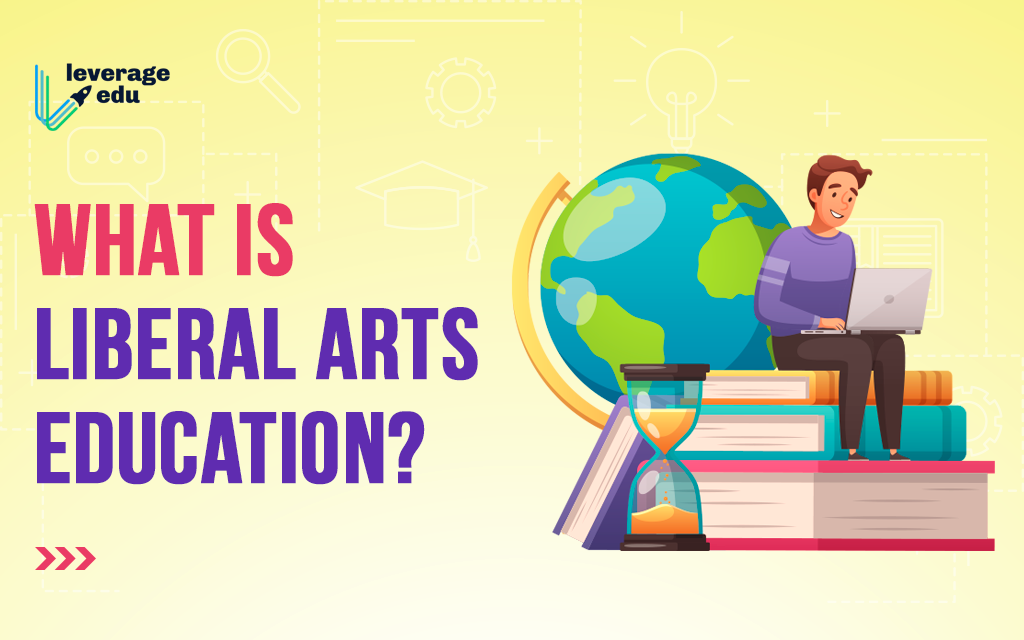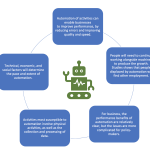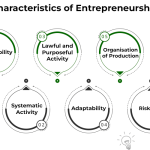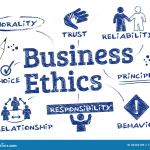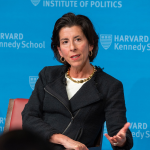Liberal arts education plays a crucial role in shaping well-rounded individuals who can effectively navigate the complexities of modern society. This form of education emphasizes critical thinking, analytical skills, and effective communication, making it as vital as ever in today’s competitive job market. With an increase in demand for versatile skills, the importance of liberal arts cannot be overstated—it fosters adaptability and innovative thinking, qualities sought after by employers across various industries. Additionally, the value of a liberal arts degree lies not just in job placements but also in cultivating active citizens capable of contributing to a democratic society. As we explore the myriad benefits of liberal arts, it’s essential to recognize its historical significance and ongoing relevance in nurturing informed and engaged individuals.
The pursuit of a liberal studies education, often recognized for its broad focus on humanities and social sciences, is essential in fostering adaptable and thoughtful graduates. This educational approach equips students with diverse intellectual tools, enabling enhanced decision-making and problem-solving abilities, which are increasingly sought after in various fields. Emphasizing the significance of this type of training goes hand in hand with recognizing how it enriches societal discourse and encourages civic engagement. Through a comprehensive lens, we can appreciate the foundational role that this educational model plays in promoting creativity and critical inquiry within our communities. As we reassess higher education’s role, understanding the societal need for well-informed citizens illuminated by broad education becomes paramount.
The Importance of a Liberal Arts Education
A liberal arts education is invaluable in fostering critical thinking, creativity, and adaptability, which are essential skills in today’s fast-paced job market. Students exposed to various disciplines, including humanities, social sciences, and natural sciences, cultivate the ability to analyze complex problems, synthesize information, and communicate effectively. This versatility prepares graduates for a wide range of careers, distinguishing them from those trained in more narrow, vocational fields. In an era where job trajectories are unpredictable, the broad skill set gained from a liberal arts education becomes a distinct advantage, equipping graduates to navigate shifting workplace demands.
Moreover, the importance of liberal arts extends beyond individual career success. It plays a crucial role in sustaining democratic societies. By engaging with diverse perspectives and challenging their own beliefs, students develop a deeper understanding of civic responsibility and cultural awareness. This educational framework nurtures informed citizens who can contribute thoughtfully to community and societal discussions, ensuring that democracy thrives amidst rapid changes. Thus, rather than viewing liberal arts as a luxury, it should be recognized as a vital component of a comprehensive education that prepares individuals not only for work but also for active participation in society.
Navigating the Liberal Arts Job Market
Despite concerns about the liberal arts job market, evidence suggests that liberal arts graduates can find fulfilling employment. While initial salaries may be lower compared to those in STEM fields, research shows that earning potential for liberal arts majors often catches up over time. Employers value the soft skills emphasized in liberal arts education, such as critical thinking, problem-solving, and interpersonal communication. These traits are increasingly sought after in a collaborative work environment, setting liberal arts graduates apart in their ability to adapt to various roles.
In the current landscape, many companies prioritize skills over specific degrees, meaning that liberal arts graduates can leverage their well-rounded education to enter diverse fields. For instance, graduates have successfully transitioned into roles in marketing, education, and public relations, where strong communication skills and creative thinking are paramount. As industries evolve, the ability to learn and adapt becomes crucial, and a liberal arts education provides a solid foundation for lifelong learning, ultimately leading to career resilience and growth.
The Value of Liberal Arts in Modern Society
The value of liberal arts education is often debated in contemporary society, especially amid rising tuition costs and job market pressures. However, it is essential to recognize that the benefits of a liberal arts education extend far beyond immediate economic returns. This education nurtures critical thinkers, capable of addressing complex societal challenges by analyzing multiple viewpoints and fostering cultural literacy. In an increasingly polarized world, these skills are crucial for promoting understanding and dialogue among diverse populations.
Moreover, the intrinsic value of studying the liberal arts lies in its capacity to enrich personal growth and civic engagement. Courses in philosophy, literature, and history encourage students to reflect on ethical dilemmas, societal norms, and human experiences, enhancing not only their intellectual depth but also their emotional intelligence. Such enrichment cultivates citizens who are not only well-informed but also empathetic, contributing to a more cohesive and democratic society.
Historical Perspectives on Liberal Arts Education
Understanding the history of liberal arts education can illuminate its evolving role in society. Historically, liberal arts education emerged to cultivate well-rounded individuals capable of fulfilling civic duties and contributing to the public good. In ancient Greece, for instance, this educational framework was developed to foster leaders who could think critically and engage in meaningful discourse. Today, while the context has changed, the foundational principles of liberal arts remain relevant, emphasizing the importance of a well-rounded education that encompasses various disciplines.
As we reflect on this history, it is crucial to recognize that the challenges faced by liberal arts education today mirror historical debates about its relevance. Issues surrounding accessibility, affordability, and societal perception have persisted, and addressing these concerns is critical for the future of liberal arts. Universities must advocate for and innovate their liberal arts programs, ensuring they remain essential for fostering intellectual and civic engagement in our ever-changing world.
Benefits of a Liberal Arts Education
The benefits of a liberal arts education extend far beyond the classroom, equipping students with versatile skills that are applicable in various career paths. This type of education emphasizes critical thinking, effective communication, and creativity, enabling graduates to thrive in diverse professional environments. As job markets continue to evolve, employers increasingly seek candidates who can adapt to new challenges and think critically, traits that a liberal arts education cultivates. Additionally, graduates often demonstrate strong interpersonal skills, making them valuable team members in collaborative work settings.
Furthermore, a liberal arts education fosters lifelong learning and curiosity, essential traits in a rapidly changing world. Students learn to approach complex problems with an open mind and are encouraged to explore interdisciplinary connections, allowing them to innovate and adapt as they progress in their careers. This adaptability not only enhances job security but also contributes to personal satisfaction and growth, as graduates find fulfillment in their ability to apply their diverse knowledge and skills in meaningful ways.
The Role of Technology in Liberal Arts Education
As technology becomes increasingly integrated into higher education, its role in enhancing liberal arts education cannot be overlooked. Today’s digital tools provide innovative opportunities for students to engage with material, collaborate on projects, and connect with diverse perspectives worldwide. Online platforms facilitate access to a wealth of information, enabling students to research and debate topics thoroughly, thereby enriching their learning experience. Furthermore, technological advancements allow educators to implement interactive methodologies that promote critical thinking and creativity, essential elements of a liberal arts education.
However, with the rise of technology comes the responsibility to teach students how to navigate information critically and ethically. In a landscape filled with misinformation, liberal arts education is uniquely positioned to instill the skills necessary for students to discern credible sources and engage thoughtfully with differing viewpoints. By blending traditional liberal arts principles with modern technology, institutions can create a more dynamic and relevant learning experience that prepares students for the complexities of contemporary society.
Accessibility and Equity in Liberal Arts Education
Accessibility and equity in liberal arts education are critical concerns that institutions must address to ensure all students can benefit from this educational approach. Economic burdens often discourage first-generation and low-income students from pursuing liberal arts degrees, leading to a perception that such education is a privilege reserved for the elite. To rectify this, universities must develop robust support systems and financial aid opportunities that promote inclusivity and empower students from diverse backgrounds to explore liberal arts without economic hindrance.
Additionally, it is essential for educational institutions to foster environments where all students feel welcomed and valued. This includes creating mentorship programs, outreach initiatives, and community partnerships that encourage diverse voices and perspectives within the liberal arts structure. Emphasizing accessibility and equity not only enhances the learning environment but also enriches the educational experience for all students, ultimately contributing to a more informed and engaged citizenry.
Skills Developed Through Liberal Arts Education
One of the most notable outcomes of a liberal arts education is the development of transferable skills that are in high demand across various industries. Students engage in critical analysis, problem-solving, and effective communication, which are essential in navigating complex work environments. The interdisciplinary approach encourages students to approach issues from multiple angles, fostering creativity and innovation. These skills not only enhance employability but also empower graduates to adapt to an ever-evolving job market where versatility is paramount.
Moreover, liberal arts education cultivates emotional intelligence and ethical reasoning. As students delve into subjects that explore human experiences, cultures, and moral dilemmas, they gain a deeper understanding of the human experience. This empathetic perspective is invaluable in building relationships in professional settings and addressing the social responsibilities of their roles. Graduates are thus equipped not only to succeed in their careers but also to contribute positively to society as engaged and thoughtful leaders.
Future Directions for Liberal Arts Education
As we look to the future, liberal arts education must evolve to remain relevant in an increasingly complex world. This entails innovating curricula to integrate emerging technologies and address current societal issues. By embedding contemporary themes and interdisciplinary approaches into the learning experience, institutions can better prepare students for the challenges they will face in their careers and communities. This forward-thinking perspective ensures that liberal arts education adapts to the needs of the present while maintaining its foundational ideals.
Additionally, fostering partnerships between universities, businesses, and communities can enhance the practicality of liberal arts education. Collaborations that provide real-world experience, internships, and mentorship opportunities can bridge the gap between academic learning and professional application. By engaging with industry leaders and community stakeholders, liberal arts programs can remain vital to developing well-rounded individuals who are prepared to navigate the complexities of modern society successfully.
Frequently Asked Questions
What is the importance of liberal arts education in today’s job market?
The importance of liberal arts education in today’s job market lies in its emphasis on critical thinking, creativity, and adaptability. Employers increasingly seek candidates who can approach complex problems from various angles and communicate effectively. A liberal arts education provides students with a broad skill set that prepares them for diverse career paths, making them competitive in an evolving job landscape.
What are the key benefits of a liberal arts education?
The benefits of liberal arts education include fostering analytical skills, enhancing communication abilities, and promoting creativity. Students engage with interdisciplinary studies, which cultivates a deeper understanding of human experiences and prepares them for various careers. Additionally, graduates often report higher job satisfaction and adaptability in their careers due to the diverse skill set acquired through liberal arts.
How does liberal arts education prepare students for employment in a changing economy?
Liberal arts education prepares students for employment in a changing economy by teaching them to think critically and learn independently. This foundation enables them to adapt to new technologies and job roles throughout their careers. The versatility gained through a liberal arts curriculum allows graduates to pivot between different fields and embrace lifelong learning, which is crucial in a fast-paced job market.
What is the value of a liberal arts degree compared to vocational training?
The value of a liberal arts degree compared to vocational training lies in its comprehensive approach to education. While vocational training focuses on specific job skills, liberal arts cultivates critical thinking, communication, and problem-solving abilities applicable to various careers. This broad educational foundation helps graduates nurture diverse careers, adapt to changing workplace demands, and engage meaningfully with societal issues.
Why do some people view liberal arts education as a luxury?
Some people view liberal arts education as a luxury due to rising tuition costs and perceptions that it doesn’t lead directly to immediate job opportunities. This view often stems from an emphasis on vocational training in education discussions, highlighting the need for economic justification for liberal arts majors. However, many educators argue that the skills gained from liberal arts are essential for personal development and employed success.
How can universities enhance the appeal of liberal arts education?
Universities can enhance the appeal of liberal arts education by promoting its relevance to current job markets and demonstrating its benefits through innovative curricula. This includes integrating real-world projects, internships, and cross-disciplinary studies that connect students with career opportunities. Additionally, making liberal arts programs more economically accessible can encourage broader participation.
What is the historical significance of liberal arts education?
The historical significance of liberal arts education is rooted in its origins as a means to prepare individuals for active participation in democratic society. Traditionally, liberal arts education aimed to cultivate informed citizens capable of critical thought and civic engagement, underscoring its enduring value in fostering a thoughtful and participatory populace.
How do employers perceive graduates with liberal arts degrees?
Employers increasingly perceive graduates with liberal arts degrees as adaptable candidates equipped with strong critical thinking and communication skills. While initial hiring preferences may lean towards specialized fields, many employers recognize the long-term value of hiring liberal arts graduates who can navigate complex challenges and contribute collaboratively in diverse work environments.
What skills do liberal arts education students develop that are beneficial in the workplace?
Students in liberal arts education develop a variety of skills beneficial in the workplace, including analytical reasoning, effective communication, cultural awareness, and creativity. These skills are essential for problem-solving and teamwork in diverse settings, preparing graduates to succeed in various industries and adapt to the multifaceted demands of modern careers.
Can liberal arts education help in building a successful career?
Yes, liberal arts education can help build a successful career by equipping students with a versatile skill set that employers value. Graduates learn to think critically, communicate effectively, and approach problems creatively, which prepares them for success across numerous fields and enhances their potential for advancement in their chosen professions.
| Key Points | Details |
|---|---|
| Liberal Arts Education Value | Critical for independent thinking and societal contribution. |
| Skills Development | Provides a ‘toolkit’ for tackling future challenges rather than specific vocational skills. |
| Economic Perspectives | Students benefit from a liberal arts education over their lifetime despite initial salary disparities. |
| Access and Perception Issues | Seen as a luxury, with concerns about affordability and the return on educational investment. |
| Adaptation to Modern Needs | Call for innovation in liberal arts curricula to meet contemporary student requirements and economic demands. |
Summary
Liberal arts education is increasingly recognized as crucial in today’s evolving job market. These programs not only foster critical thinking and creativity but also equip students with versatile skills necessary for lifelong learning and adaptability. As societal needs change, a liberal arts education remains an essential part of preparing individuals for dynamic careers and informed citizenship. It is important that educational institutions re-evaluate their approaches to make liberal arts education accessible and appealing, ensuring that it plays a vital role in shaping the next generation of leaders thought.
